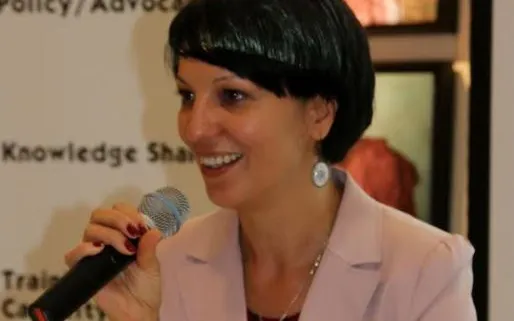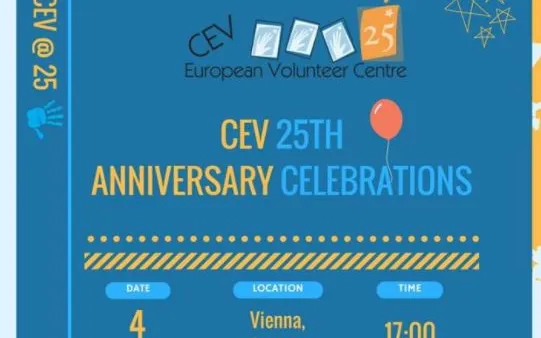Cristina Rigman: "The economic crisis and resulting austerity measures have changed considerably the landscape for volunteering in Europe"
The president of European Volunteer Centre talks about troubles and challenges of european volunteering on the occasion of 25th anniversary of CEV.
How would you briefly describe the European Volunteer Centre?
The European Volunteer Centre (CEV) is the European network supporting and promoting volunteering in Europe. Through our network we work together to promote and support volunteering through advocacy, knowledge sharing and capacity building & training. In this way we reach out to the many thousands of volunteers and volunteer organisations bringing the European dimension to their work.
CEV is celebrating 25 years. What are the main challenges faced during these years?
The lack of co-ordinated volunteering policy at the European level has been a huge challenge. The changing political landscape in Europe has been challenging also, but at the same time it has opened up new opportunities for citizens to volunteer. The economic crisis and resulting austerity measures have also changed considerably the landscape for volunteering in Europe during this period.
What are the most important troubles you have found during this period?
Not having comparable data on volunteering in Europe available in order to provide an evidence base for our advocacy work has impacted greatly on our capacity to contribute to the development of an enabling environment in Europe through appropriate and fit for purpose volunteering policies.
In your opinion, what do you think that is necessary in order to improve the volunteering in Europe?
The focus needs to be on our 5R policy priorities.
Recognition: The learning achieved by volunteers needs to be properly recognised and accredited when desired. The roadmap for the implementation of the Recommendation on the Validation of non-formal and informal learning should be fully implemented.
Real Value: The evidence base for volunteering policies should be improved whereby the contribution of volunteering to the economy and social cohesion and convergence be measured and better understood.
Regulatory Framework: Europe still requires a co-ordinated volunteering policy with a single contact point in the EU institutions. Local volunteering strategies need to be rewarded when they are well developed and supported to improve when they are not in order to continue to ensure quality volunteering standards.
Resources: Volunteers and their organisations, including infrastructure organisations providing advice, support and training for volunteering, deserve to be properly funded and supported, including through employee volunteering.
Refugees: The fact that volunteers are the backbone to the support being offered to people seeking sanctuary in Europe gives a specific focus. It is a current example, and visible symbol, of the importance of volunteers and the way that they embody European values, contribute to resilience, and are available to offer flexible and pragmatic solutions to shared challenges. Volunteers should be better recognised, celebrated and supported as such.
Have you organised some special events to celebrate CEV's anniversary?
On 4th October in Vienna CEV members will gather together with other stakeholders in volunteering in Europe in order to consider the Impact & legacy at European, National and Local level of 25 years of CEV and to engage in strategic discussion on the CEV development towards the next 25 years.
What are the achievements you would like to see in the European Volunteer Centre in the next 25 years?
The strengthening of the significance and outreach of the European Volunteering Capital would be an important achievement as this is a crucial vehicle for highlighting the critical role of volunteering strategies at the local level and taking the European Policy Agenda for Volunteering (PAVE) and the legacy of EYV 2011 as close to the citizens daily volunteering activities as possible.
A co-ordinated volunteering policy at the level of the EU institutions will also be an important achievement, together with a successful full implementation of the European Solidarity Corps.
The collection of comparable data on volunteering in different European countries is another achievement we would like to see in order that this can be used as evidence towards the development of stronger volunteering infrastructure across Europe that will in turn enable more, and better quality volunteering meeting needs in society and building stronger social cohesion and prosperity for all.









Add new comment